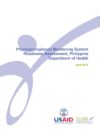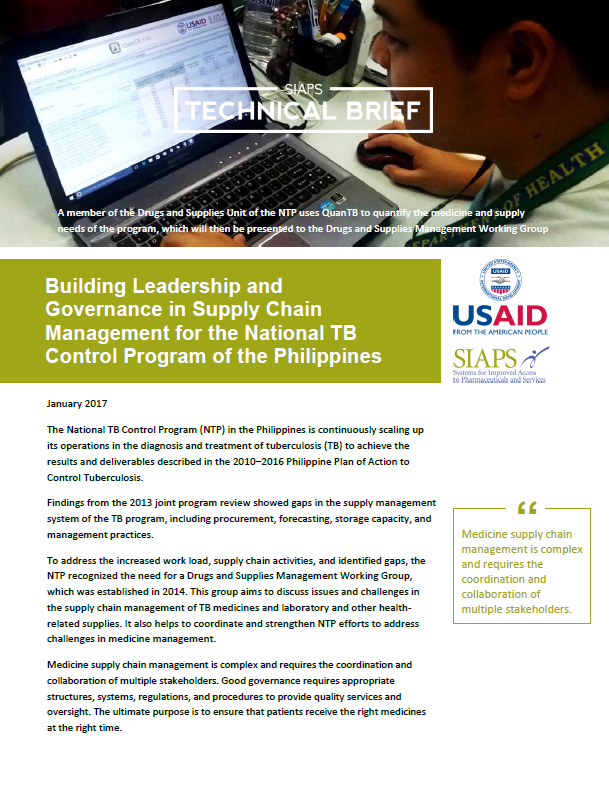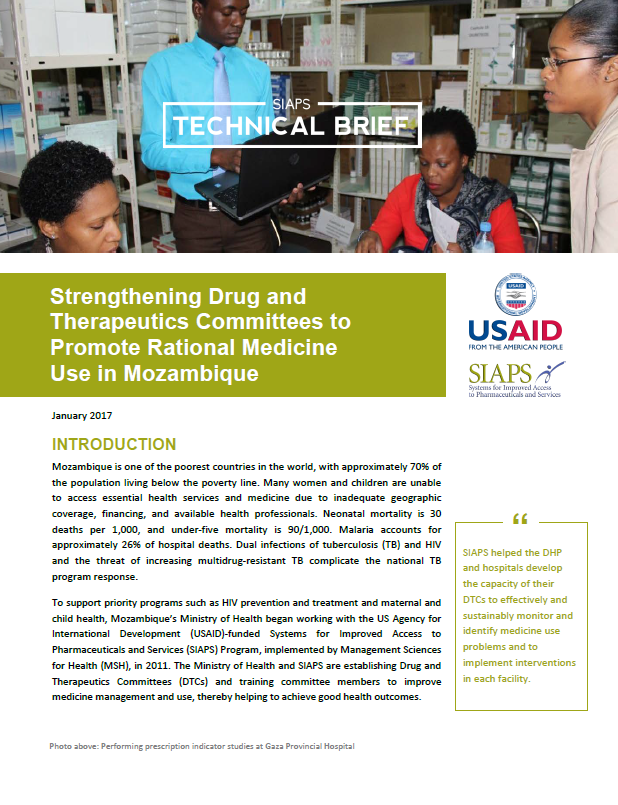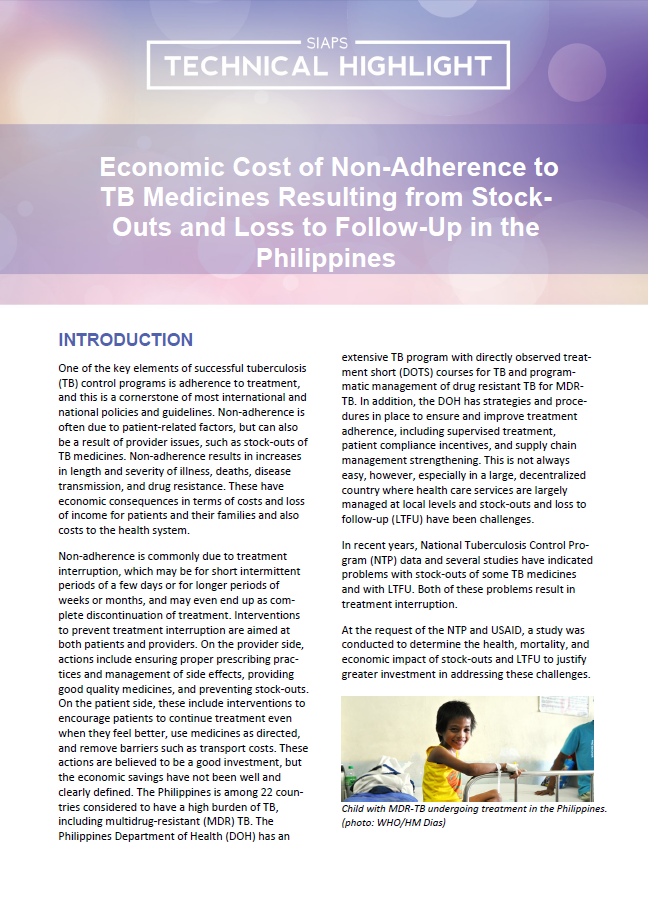SIAPS, in partnership with the FDA, NTP, and LCP-NCPR, conducted a readiness assessment to determine the current information technology (IT) infrastructure, human resources, processes, and data management and quality control mechanisms available and to identify gaps in the current PV recording and reporting of patients in the seven Programmatic Management of Drug-Resistant TB (PMDT) treatment … Read more
The National TB Control Program (NTP) in the Philippines is continuously scaling up its operations in the diagnosis and treatment of TB to achieve the results and deliverables described in the 2010–2016 Philippine Plan of Action to Control Tuberculosis. The USAID-funded SIAPS Program is supporting the NTP in its effort to increase the capacity of various … Read more
Mozambique is one of the poorest countries in the world, with approximately 70% of the population living below the poverty line. Many women and children are unable to access essential health services and medicine due to inadequate geographic coverage, financing, and available health professionals. Neonatal mortality is 30 deaths per 1,000, and under-five mortality is … Read more
Konduri N, Delmotte E, Rutta E. Engagement of the private pharmaceutical sector for TB control: Rhetoric or reality? Journal: Journal of Pharmaceutical Policy and Practice, 2017, Volume 10, Number 1 Read the full article
Vianzon R, Celina Garfin AM, Lagos A, Belen R. The tuberculosis profile of the Philippines, 2003-2011: Advancing DOTS and beyond. Surveillance Report. 2013. Read the full article
Comprehensive strategies and actions for monitoring the safety of medicines are essential to a well-functioning pharmaceutical sector. The links below highlight recent SIAPS Program work in priority and emerging health issues to strengthen health systems. SIAPS Voices series “You can’t achieve UHC without thinking about gender” In public health, when you’re designing an intervention you’re … Read more
Editors’ Note: This is the first of a special series called Voices, in which SIAPS staff share their views on global health issues and their work in the field. This interview is with Kelly Sawyer, SIAPS technical advisor for tuberculosis. What sets TB apart from other health areas? TB is now the number one infectious … Read more
Namibia faces a dual public health burden of HIV and AIDS and tuberculosis (TB). Critical to the treatment and management of these diseases is an effective workforce that can provide quality pharmaceutical services throughout the country. Pharmacists and pharmacist assistants (PAs) play critical roles in dispensing life-saving medications, monitoring patient health and progress, and educating both patients and other health … Read more
By Kelly Sawyer, Technical Associate – TB The SIAPS program, in collaboration with the Challenge TB project in Ethiopia, organized a national forecasting and quantification training on the QuanTB tool in September in Bishoftu town, Ethiopia. QuanTB, which SIAPS developed in 2013, is a downloadable electronic tool designed to improve Tuberculosis (TB) medicines procurement processes, ordering … Read more
One of the key elements of successful tuberculosis (TB) control programs is adherence to treatment, and this is a cornerstone of most international and national policies and guidelines. Non-adherence is often due to patient-related factors, but can also be a result of provider issues, such as stock-outs of TB medicines. Non-adherence results in increases in … Read more







